Cognac is a top-shelf brandy that has been aged for at least two years in oak casks and can only be produced in Cognac, France. The spirit is made from grapes and each bottle must contain an alcohol content of at least 40%. Although each brand is unique, they all tend to have a flavor that you'd expect from a dry distilled wine and an accompanying velvety, smooth mouthfeel.
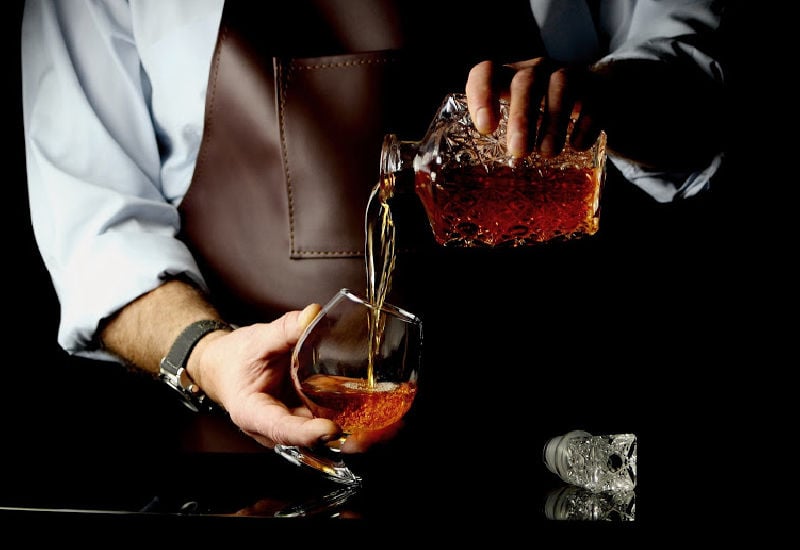
The strict requirements for producing cognac means that it's quite expensive. If you don't want to splash out on a bottle then you're going to need an alternative. Whether you want to drink it or use it in a recipe, we've pulled together a list of excellent cognac substitutes for any occasion.
What can I use to replace cognac?
To replace cognac in cooking you can use brandy, sherry, or white wine. For an alcohol-free ingredient, you can use brandy extract, or the juice from peach, apricot, or pears. As a drink, brandy will work fine in cocktails and it can also be sipped on its own. Armagnac is a good option if you're looking for something a little fancier as a digestif.
1. Brandy
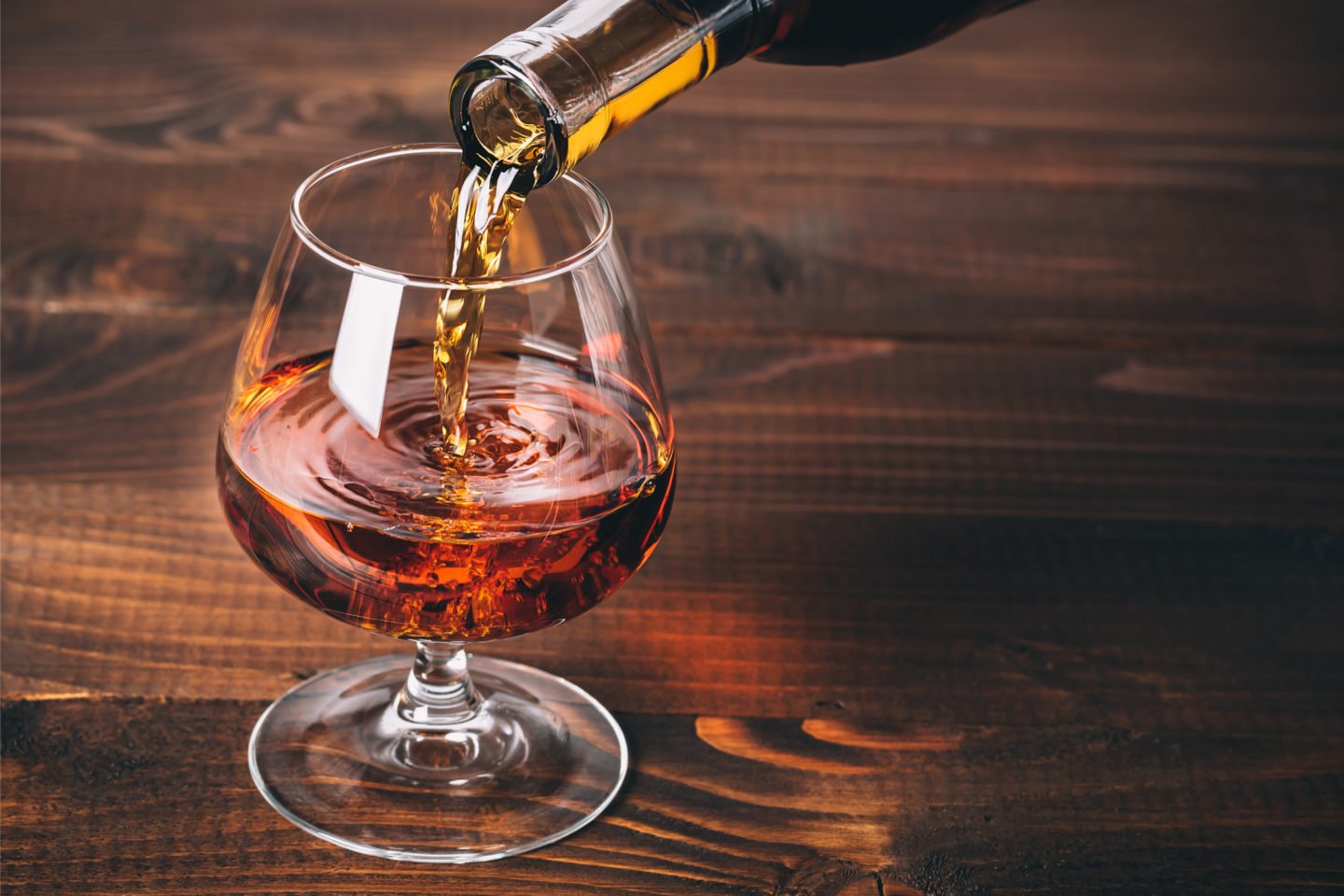
The relationship between brandy and cognac is a lot like the connection between champagne and sparkling wine. They are essentially the same thing only one is more expensive as it has a tight set of restrictions around how and where it is produced. Sure, cognac will offer a sensory experience for those with a well-trained palate, but for the rest of us, the difference will barely be noticed.
When poured into a cocktail, cooked off in a sauce, or splashed into a dessert for extra flavor, no one will notice you've switched the ingredient. Be sure to check the label though and make sure it isn't a flavored variety like peach or apple brandy as this may taste out of place in your recipe. Brandy is also excellent for deglazing and flambéing. Check the label to ensure that the bottle you're buying is 80-proof alcohol.
Most bottles of domestic brandy can be used as a cognac substitute, but a useful rule is "if you wouldn't drink the spirit, then don't use it in your cooking". For a cheap bottle of brandy consider Korbel which works great in cooking. As a drink, try Brandy de Jerez which has a heavier body than cognac and is also sweeter thanks to the use of faster-maturing grapes.
2. Armagnac
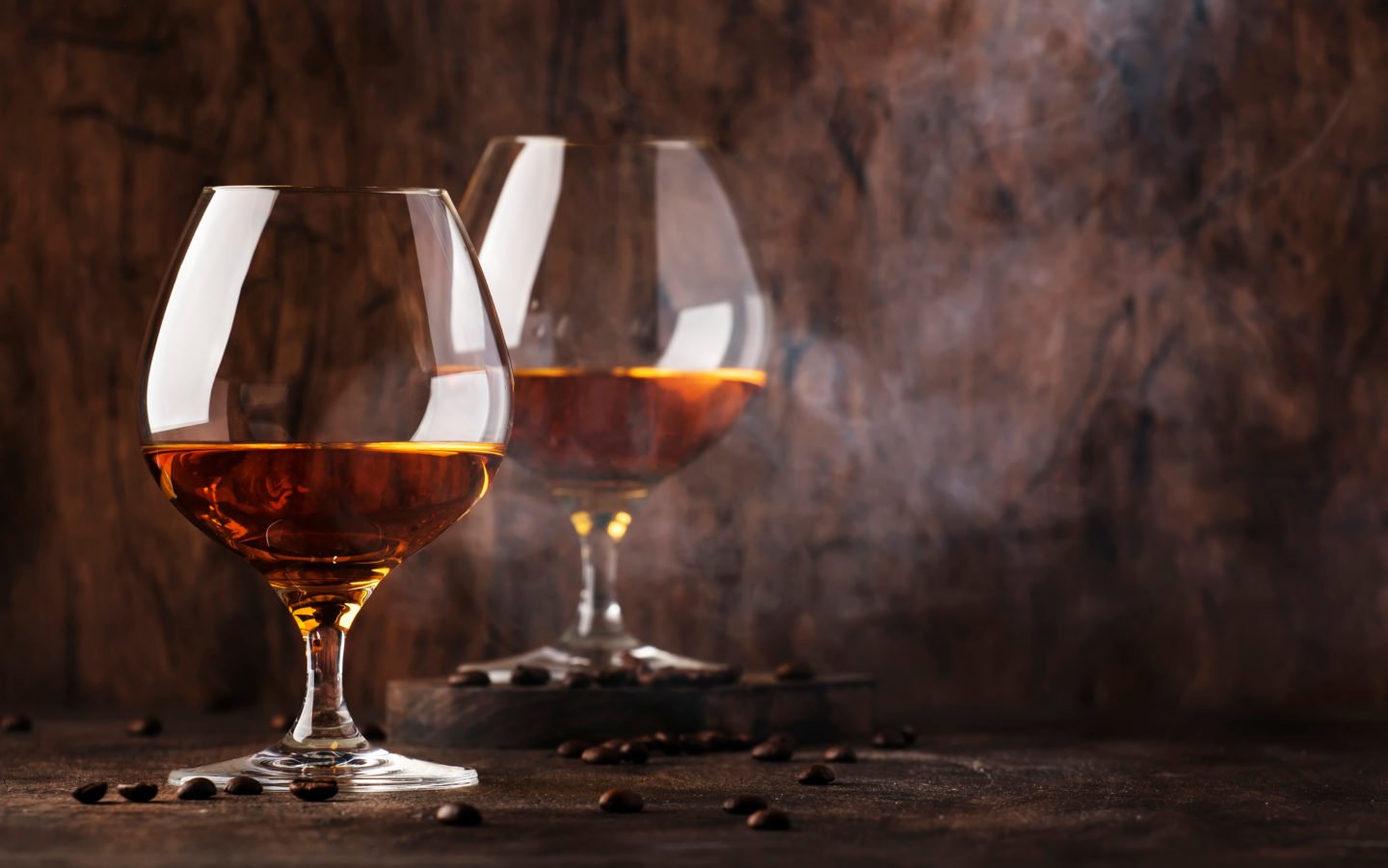
Are you looking to replace cognac as a digestif? Armagnac is a type of brandy that is produced in the Southwest of France from the Armagnac region in Gascony. This spirit usually has a lower alcohol content than cognac; however, it tends to have a more complex flavor and is drier in taste.
In cooking, we would recommend using a cheaper brandy as much of the flavor gets lost during cooking. But for drinking, choose Armagnac for its robust flavor - this is a top-shelf drink that you'll be happy to serve to your in-laws next time they're over.
3. Sherry
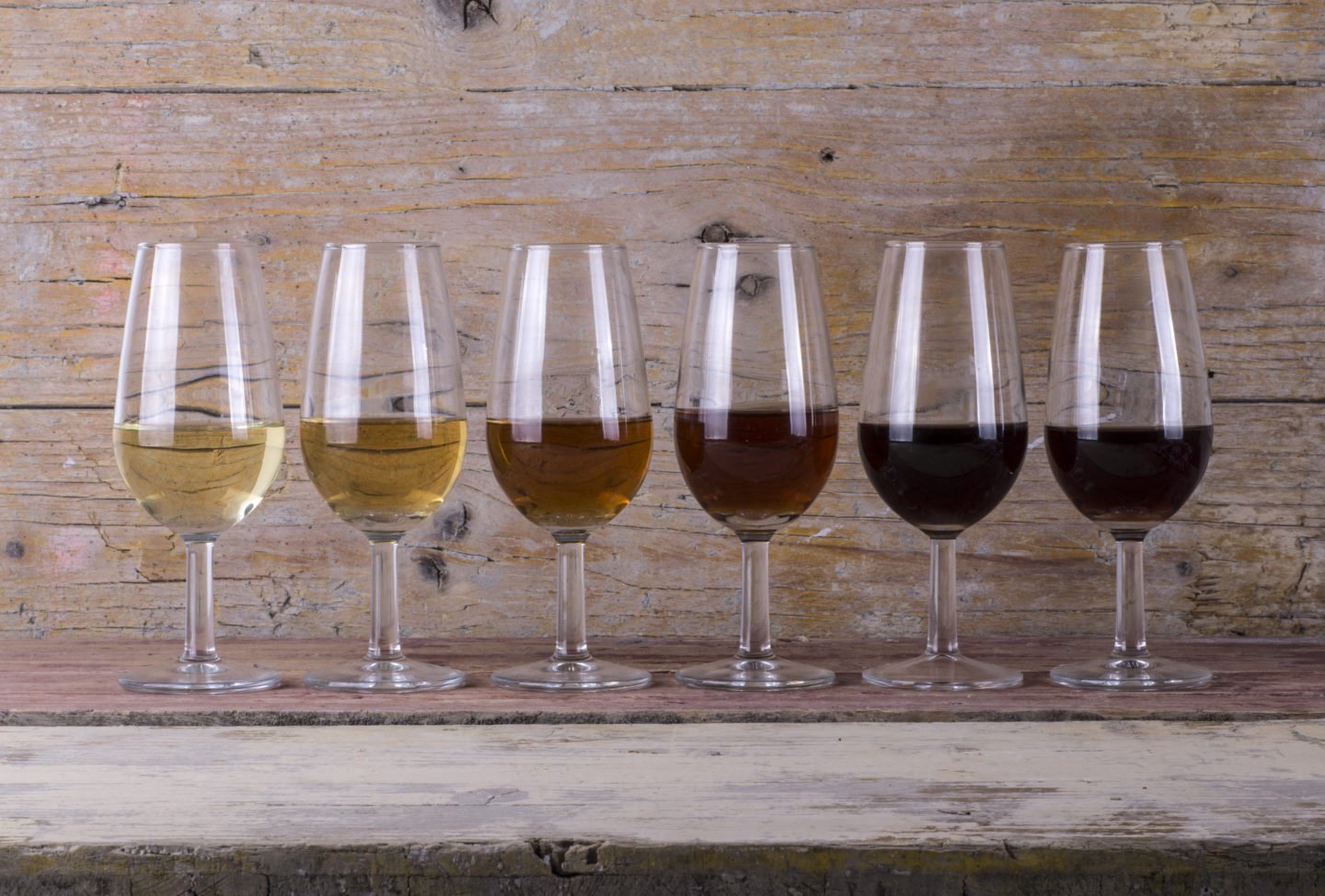
Sherry comes from Spain and is a type of fortified wine that exhibits dried fruit and nutty flavor. To help mimic the taste of cognac, forget the sweet products that are labeled “cream sherry” and look for a better quality dry variety. Sherry is a good option for adding to your next coq au vin or beef stroganoff. Once slow-cooked, the alcohol cooks off and the flavor diminishes, leaving delicious food.
4. Wine

In a pinch, white wine could be used as an alternative to cognac in recipes like gravy and other sauces. An inexpensive bottle of Sauvignon Blanc or Pinot Grigio will be especially useful for these applications.
You could also use a medium to full-bodied wine that's not overly sweet. We suggest that you avoid chardonnays as they can become bitter and astringent when reduced. Bold wines like Shiraz will significantly alter the flavor of your food so stay clear of them.
5. Scotch whiskey
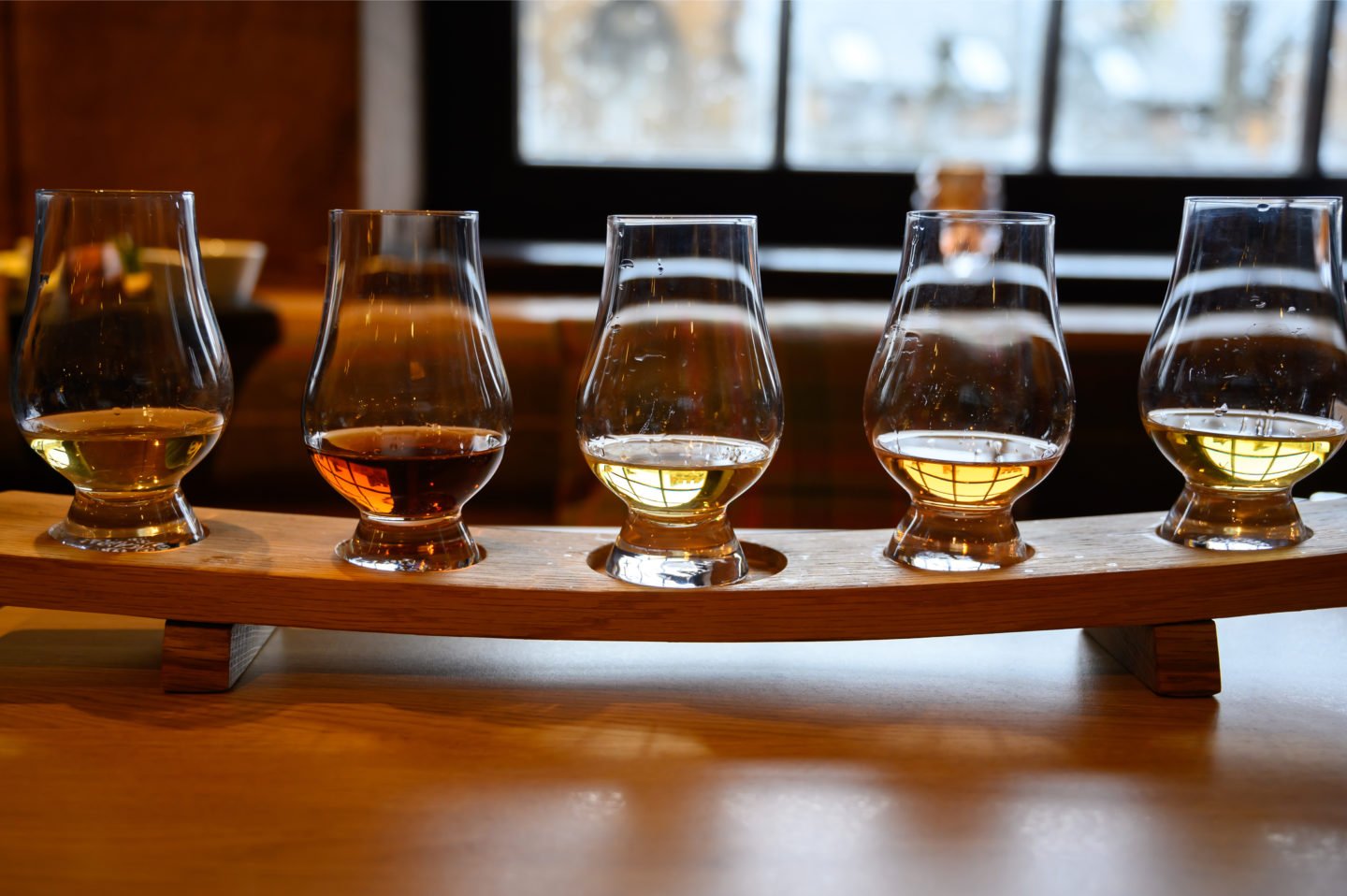
If you're looking for a nice bottle of spirits to drink but don't want to fork out on cognac, then consider a good quality bottle of Scotch, bourbon, or even rum. You could also use these alternatives if you don't enjoy the taste of cognac and need something a little different. Although it's conceivable that you could use Scotch in cooking, we would suggest there are cheaper alternatives which will do a similar job.
6. Brandy extract

Your best alcohol-free option for replacing cognac is brandy extract. You could use this option in mocktails, desserts and baking recipes where you're trying to add flavor. For every tablespoon of cognac, replace it with one teaspoon of brandy extract. In baking recipes, you may need to add a little extra liquid to compensate.
7. Fruit juice
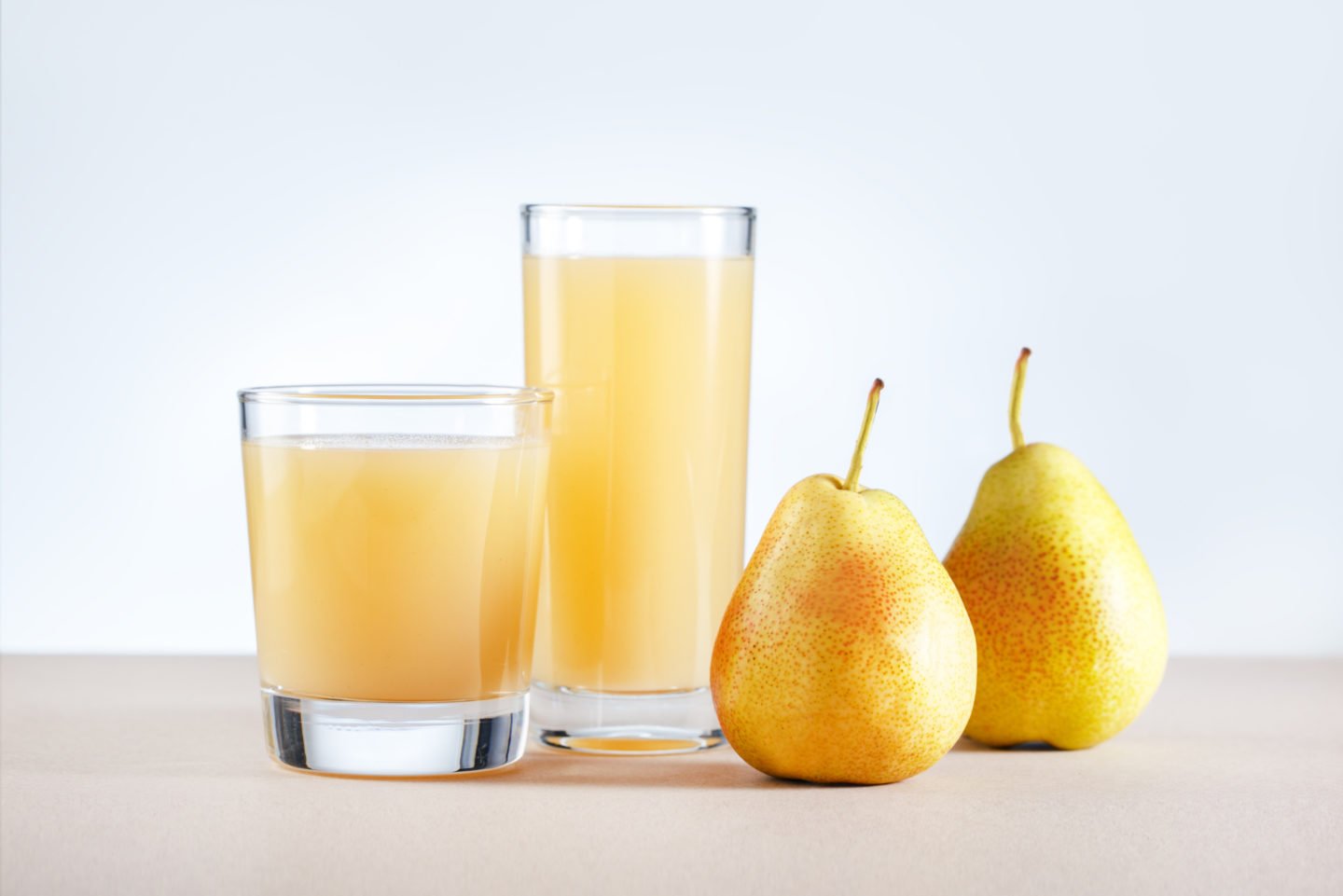
You can try fruit juice as another no-alcohol ingredient in cooking. Pear, apple, apricot, or peach juice are all good options that you can use in equal quantities as you'd use the original ingredient. Stay clear of juices that have sugar added as they could make your food too sweet. If you're making a sauce, add a little extra water to dilute the sweetness of the juice.
Summary of cognac substitutes
There are no hard and fast rules on what can and can't be used as suitable replacements. But we’ve listed some suggestions below to help you make your mind up.
| Use | Substitute |
|---|---|
| Desserts | Brandy, sherry |
| Cocktails | Brandy, whiskey, bourbon, port, or rum |
| Alcohol-free | Brandy extract or fruit juice |
| As a drink on its own | Armagnac or any top-shelf brandy |
| Coq au vin (chicken) | Brandy or sherry |
| Beef stroganoff | Brandy or sherry |
| French onion soup | Brandy or sherry |
| Tiramisu | Brandy, rum, coffee liqueur |
| Steak au poivre | Brandy or sherry |
| Gravy | White wine |
Related articles:
What are the best cooking wine alternatives?
What are the recommended limoncello substitutes?
How do I replace kirsch in my next recipe?
What are some excellent substitutes for Creme de Violette?
Fast facts
- The oak barrels play an important part in influencing the flavor of cognac as it ages.
- Cognac has a complex flavor profile that often provides fruity, citrusy, and spicy notes. Other flavors you may experience include toasted bread, dried apricots, vine flowers, cinnamon, or vanilla.
- As cognac ages, more complex flavors develop like toffee, chocolate, or even leather.
Summing up

Cognac is a French brandy that can be quite expensive depending on the brand. If you only need a splash of this liqueur in your next recipe then it doesn't make sense to buy a whole bottle. Instead, you can use an alternative like brandy, sherry, wine, or whiskey. A brandy extract or fruit juice will work fine in most recipes if you need an alcohol-free option.
In most cases, the final food or drink will be different than if you use cognac, but it won't turn a delicious dish into something inedible. In some cases, you may even find the substitute is an improvement.
What is your favorite alcohol for using in desserts? Please let us know in the comments below.

Leave a Reply